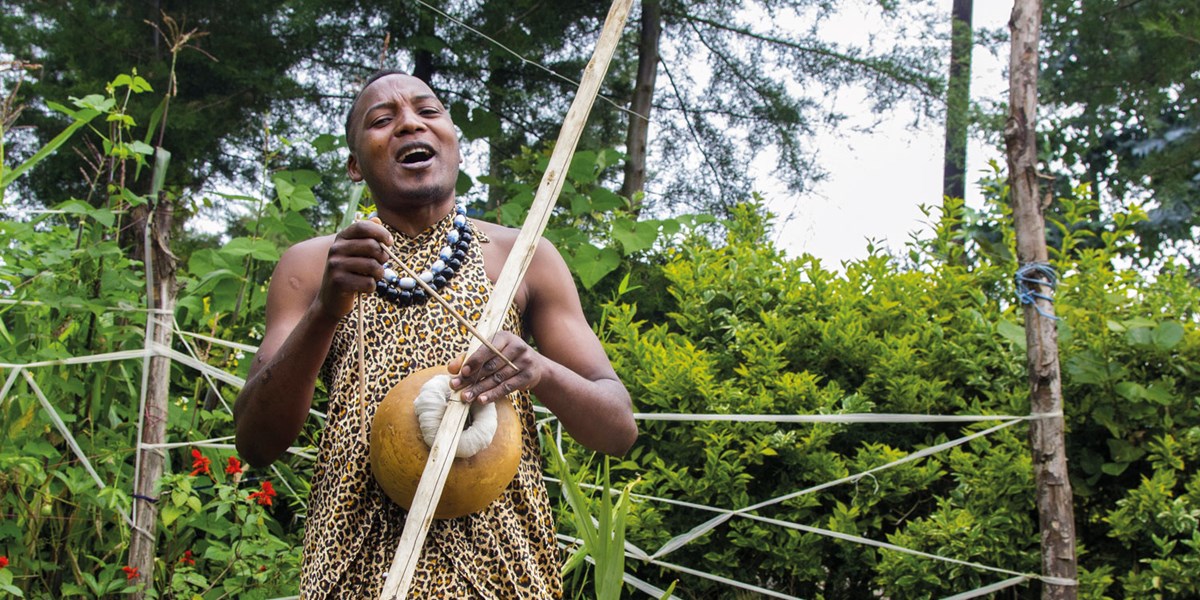Thursday, May 15, 2025
Music & Morality in Rwanda
David Green visits Rwanda to discover how traditional instruments accompany age-old tales of morality, revenge and discipline, as well as animal conservation. ‘We, the people of Rwanda, will never betray the gorillas again’, he hears… Photos by David Green

Kaningiri sings an enthusiastic welcome for visitors to Rwanda while playing the umuduri – a musical bow with two gourds attached as resonators

Register now to continue reading

Thanks for visiting the Songlines website, your guide to an extraordinary world of music and culture. Sign up for a free account now to enjoy:
- Free access to 2 subscriber-only articles and album reviews every month
- Unlimited access to our news and awards pages
- Our regular email newsletters

